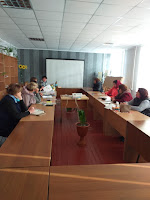Додаток
до
листа Міністерства
освіти
і науки України
від
22.09.2021
№ 1/9-482
ІНСТРУКТИВНО-МЕТОДИЧНІ
РЕКОМЕНДАЦІЇ
щодо викладання
навчальних предметів у закладах загальної
середньої
освіти у 2021/2022 навчальному році
Викладання навчальних предметів у закладах загальної середньої освіти у
2021/2022 навчальному році здійснюватиметься відповідно до вимог:
Державного стандарту початкової освіти, затвердженого постановою Кабінету
Міністрів України від 21.02.2018 № 87 (у редакції постанови Кабінету Міністрів
України від 24.07.2019 № 688);
Державного стандарту базової і повної загальної середньої освіти, затвердженого постановою Кабінету Міністрів
України від 23.11.2011 № 1392.
Виконання вимог зазначених державних стандартів є обов’язковим для всіх
закладів загальної середньої освіти незалежно від підпорядкування, типів і
форми власності.
Забезпечувати здійснення контролю за досягненням учнями результатів
навчання, визначених відповідними Державними стандартами, згідно з частиною
четвертою статті 38 Закону України «Про повну загальну середню освіту», зобов’язаний
керівник закладу освіти.
Основним документом, що забезпечує досягнення учнями
визначених відповідними Державними стандартами результатів навчання, є освітня
програма закладу загальної середньої освіти, що містить навчальний план і перелік
навчальних програм. Навчальним планом визначається загальний
обсяг навчального навантаження, навчальними програмами
предметів/інтегрованих курсів – очікувані результати навчання здобувачів освіти.
Підручник
– це один з педагогічних засобів (з-поміж багатьох інших), що допомагає
розв’язувати освітні завдання, визначені освітньою програмою.
Відповідно до навчальної програми предмета/інтегрованого курсу вчитель
складає календарно-тематичне планування з урахуванням навчальних можливостей
учнів класу.
Календарно-тематичне та поурочне планування здійснюється вчителем у довільній формі, у
тому числі з використанням друкованих чи електронних джерел тощо. Формат,
обсяг, структура, зміст та оформлення календарно-тематичних планів та поурочних
планів-конспектів є індивідуальною справою вчителя. Встановлення універсальних
стандартів таких документів у межах закладу загальної середньої освіти, міста,
району чи області є неприпустимим.
Під час розроблення календарно-тематичного та системи поурочного планування
вчитель самостійно вибудовує послідовність формування очікуваних результатів
навчання, враховуючи при цьому послідовність розгортання змісту предмета в
підручнику. Учитель може, відповідно до того, як учні засвоїли навчальний
матеріал, визначати місце теми в системі уроків, кількість годин на вивчення
окремих тем.













